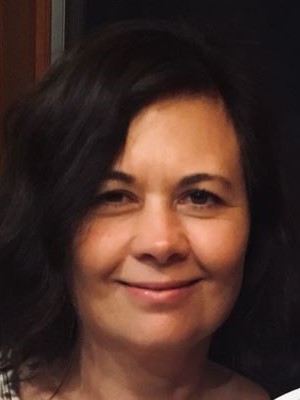
Nella Bieszk
PHARMACY
Graduated in 1991, 1999
Director, Medical Value and Outcomes, NA Medical
Specialty Care, Sanofi
Q: Why did you choose to pursue pharmacy?
A: I started with a degree in biochemistry from the University of Windsor. I was interested in a more clinical application of biochemistry and believed pharmacy could fulfil that. As a mother, being a pharmacist provided opportunity for a more flexible work schedule. Being able to work part-time as I was raising a family was very appealing.
Q: Tell us about your successful career following a nontraditional pharmacy path:
A: When I first graduated in 1991 with my RPh, I was hired into a position in retail pharmacy and then moved into hospital pharmacy shortly after that. A few years later, I went back to Wayne State to obtain my PharmD. One of my clinical rotations was in managed care at Blue Cross Blue Shield of Michigan. I really enjoyed learning about and working with drug formularies. In managed care, one could potentially impact the health of an entire population of patients.
As a result of this experience, I decided to complete a residency in managed care at Henry Ford and worked for a couple years in managed care. In this role, I was exposed to the HMO model and learned about formulary management. I proved support to both the inpatient and outpatient formulary committees through the development of formulary drug monographs that informed the decision making of the P&T committee. It was in this position that I was first exposed to the role of a Medical Science Liaison. The role of MSL is the most common way that pharmacists transition to the pharmaceutical industry. The MSL position generally covers a rather large geography, assuring that investigators are kept up to date with new data being generated by development programs for pipeline therapies as well as any new research generated by medications already on the market. I took on this challenge with Sanofi in 2001 and managed the Michigan/Ohio area for about eight years. In 2009, I moved into the role of Director of Medical Value and Outcomes. In this role I work with national health plans and PBMs. I conduct real-world research often in collaboration with these national payers as their databases are large and able to answer important questions around real world efficacy and safety.
Q: What are the biggest changes you have seen in pharmacy since graduating from Wayne State?
A: There have been a lot of changes in my 23-plus years! I would say that within managed care and the pharmaceutical industry, there have been three significant changes:
- The consolidation of health insurance companies. Twenty years ago, there was significant choice for health insurance and prescription benefits. There has been considerable change to the number of pharmacy benefit managers — now there are only a handful!
- Access to real world data has increased. Today, we can ask very detailed questions using databases that include millions of patients.
- Finally, there has been a complete shift in the funding and focus of drug research to specialty drugs. Specialty drugs such as monoclonal antibodies and gene therapy now represent about 43% of global spend. This is a result of significant advances in science and technology as well as an increase in immune disorders and chronic disease.
Q: What do you like best about your role with Sanofi?
A: I love my job. I consider myself to be a lifelong learner and my career has provided this opportunity for nearly 25 years. My role requires significant education in various therapeutic areas. Every few years, the focus can change, requiring new learning experiences yet again.
Q: What advice would you give to pharmacy students today?
A: There are many different career paths you can pursue with a PharmD. I would encourage students to look at alternative careers in managed care and the pharmaceutical industry. These broader opportunities can lead to roles in research, medical affairs, patient advocacy, marketing, market access and more. There is no need to keep doing the same thing throughout your career when personal development opportunities exist and are accessible with a PharmD degree.
The Doctor of Pharmacy program at Wayne State University is a four-year curriculum in the heart of Detroit. Approximately 100 students are enrolled in each year of the program. WSU Applebaum information meetings for prospective students take place at 6 p.m. on the first Tuesday of each month. The application process or the Doctor of Pharmacy program begins each July.
An anchor in urban health care
The Eugene Applebaum College of Pharmacy and Health Sciences is built on more than 100 years of tradition and innovation in the heart of Detroit. We have grown deep roots in our city, harnessing its powerhouse hospital systems and community service organizations as vibrant, real-world training grounds for students, with an ongoing focus on social justice in health care. And our research at all levels – from undergraduates to veteran faculty members – translates into creative solutions for healthier communities.
Wayne State University is a premier urban research institution offering approximately 350 academic programs through 13 schools and colleges to nearly 24,000 students.